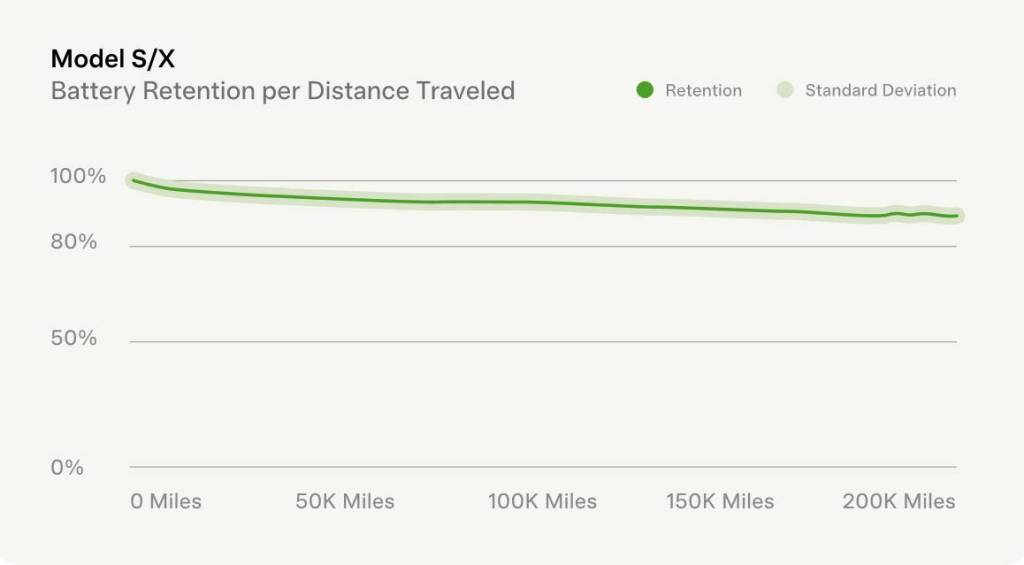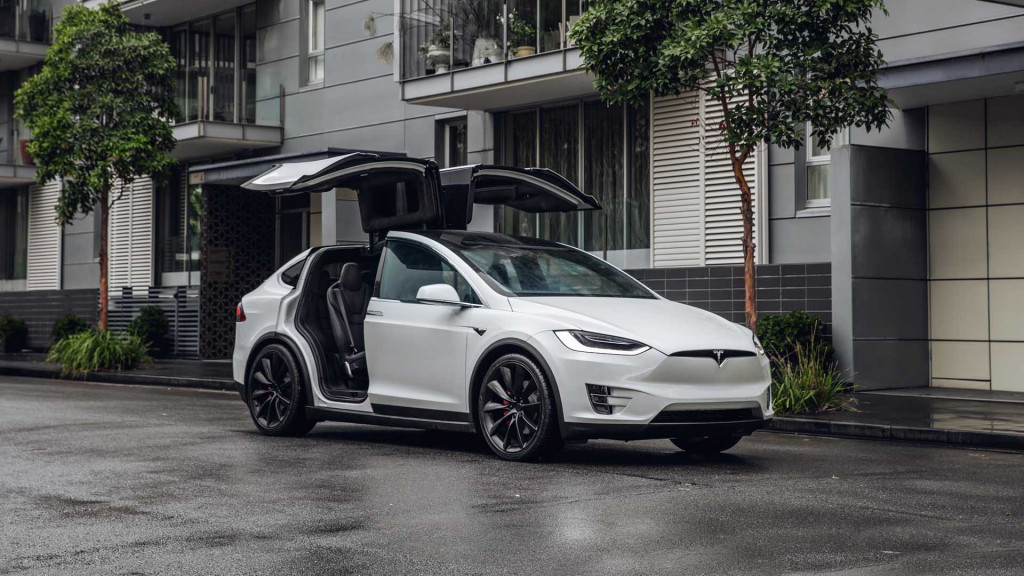On average, the Tesla Model S and Model X lose less than 12% of range after 200,000 miles.
That figure comes from a slide in the automaker's just-released 2022 Impact Report, where Tesla also noted that it estimates most of its U.S.-market vehicles get scrapped when they reach that amount of mileage. In Europe, Tesla estimates most of its cars are scrapped at approximately 150,000 miles.

Tesla Model S and Model X range degradation (from Tesla 2022 Impact Report)
Tesla's chart, which appears to relate to capacity with the term retention, suggests that Tesla customers aren't experiencing much range loss over the full lives of their vehicles. It's likely that in real-world terms, cars are likely able to get more miles out of that 88% of remaining capacity than they would have originally, thanks to software updates and the continuous improvements they bring.
In the report, Tesla also explains that age is another factor, also that it doesn't have data on other newer chemistries.
Earlier data, from around 2017, suggested that some Tesla Model S cars may still be over 90% of their original capacity after 150,000 miles—and that hasn't been shown to be far off as more data accumulates. This chart itself continues to support that.

2020 Tesla Model X
Tesla or not, battery degradation is exceedingly unlikely to brick your EV, data supports. Even for the Nissan Leaf—one of the most prone to degradation in its earliest form, there simply haven't been enough packs to recycle and recover for larger projects. And thanks to better thermal systems, some earlier concerns over heat and battery life are no longer so critical.
California is proposing battery degradation limits as part of its latest standards, which mandate a wholesale shift to EVs by 2035. While cars already on the road appear to resist battery degradation fairly well, concrete regulations might help provide peace of mind to consumers and help ease this transition.












